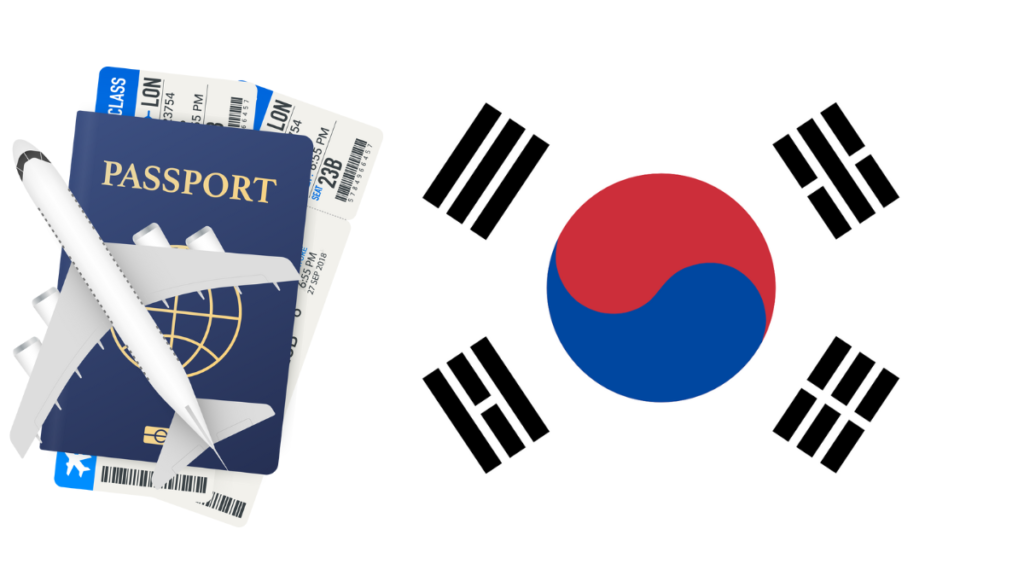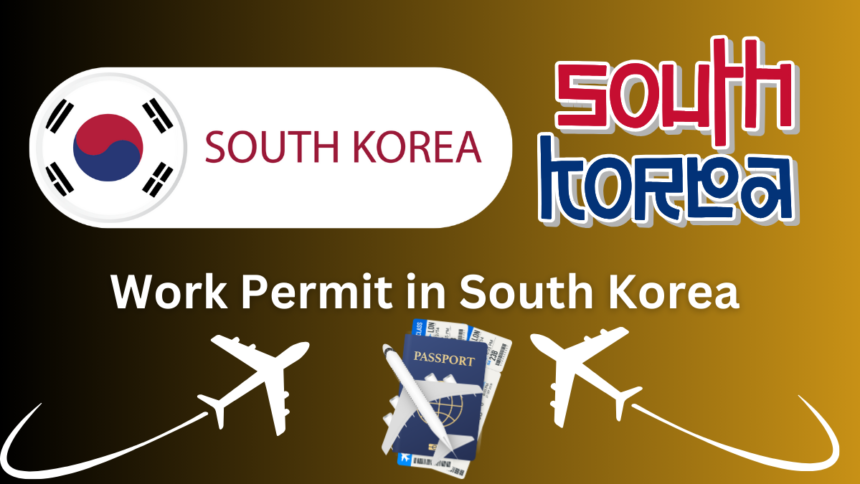A visa is an official stamp in your passport that grants you permission to travel, work, and live in a certain country for a set period. The Republic of South Korea requires foreign employees to have both a work permit and a work visa. It is impossible to work legally in the country without these documents.
Work visas protect the employee, business, and nation by ensuring and proving your valid presence in the country. Furthermore, using work visas and permits is a more ethical way to relocate for employment. Also Read, South Korea’s Digital Nomad Visa 2024
Job Market in South Korea
- Number of Expats::Anywhere between 2,000,000 to 2,500,000
- Expats Job Websites: Job Korea, Saramin, Career, Worknet, Seoul Global Center, Incruit
- Popular Industries for Expats: Media and Entertainment, Teaching, Tourism, Science and Technology, Intergovernmental Organizations
Also See; Italy Work Visa 2024 & Work Permit
South Korea Work Visa Categories
In South Korea work visas are divided into the following fields:
Professional Visa:
- C-4 Short-Term Employee Visa: Individuals who expect to work for fewer than 90 days must apply for this, regardless of the type of employment visa for which they are seeking.
- D-10-1 Job Seeker Visa: Individuals seeking employment in South Korea under one of the professional visa categories listed below must apply for this visa.
- E-1 Professor Visa: This visa is provided to foreigners who wish to do research or give lectures at a higher educational level. The validity term is one year, with numerous entry options available. Expats can renew their visas for one year at a time.
- E-2 Foreign Language Instructor Visa: Issued to people who will teach a foreign language in schools or organizations. The visa is valid for two years and allows for repeated entries. This visa can also be renewed after the two-year period finishes.
- E-3 Researcher Visa: Issued to people who seek to do research in the natural sciences or sophisticated technologies. This visa is only granted if an institution in South Korea invites the applicant. The validity term is one year, with numerous entry options available. This visa may be extended for one year at a time.
- E-4 Technical Instructor or Technician Visa: This visa is issued to those who are specialists in the fields of science and technology and will share their expertise in South Korea. This visa is only provided if the applicant has been invited by a South Korean institution. Single and multiple-entry visas are provided, with the possibility to extend as needed.
- E-5 Professional Visa: Foreigners who want to practice law, medicine, accountancy, or other professional activities in South Korea are eligible for this visa. To practice in the country, applicants must be globally licensed and hold a national certificate issued under the Republic of Korea rules.
Non-Professional Visa:
Issued for individuals who enter South Korea to work in the following sectors:
- E-9-1 Manufacturing
- E-9-2 Construction
- E-9-3 Agriculture
- E-9-4 Fishery
- E-9-5 Service
- E-10 Coastal Crew
- F-1 Household Assistant
Business Visa:
Issued to individuals who meet the following criteria:
- D-7 Intra Company Transfer Visa:This visa is provided to employees upon their move to South Korea. The D-7-1 will be provided to an individual who works for a multinational corporation and has been moved to a South Korean branch. An employee who works for a South Korean corporation in a foreign branch and is now transferred to a domestic branch will be given the D-7-2.
- D-8 Business Investment Visa: Issued to persons planning to start or invest in a business in South Korea and engage in relevant activities during their stay.
- C-3-4 Business Visitor Visa:Individuals who want to conduct meetings, market research, or participate in meetings and negotiations will be sent this document. This visa is valid for a short-term visit.
Expats who want to stay in South Korea for more than six months must apply for an Alien Registration Card. Foreigners must apply for this card within 90 days of their arrival in South Korea. The ARC, or national identity document for foreigners, allows them to access key services such as banking, medical insurance, and the internet, among others.
Requirements
While document requirements vary depending on the type of visa you apply for, some common document needs include:
- A completed visa application form
- A passport with validity for the next six months and blank pages for visa stamps
- A copy of the passport
- Passport-size photographs taken in the last three months
- Professional and educational certificates
- Employment contract
- Business registration license (in select visa applications)
- Tax returns and financial payments of the company in the previous financial year
- Sponsor letter from an MNC or a South Korean Business/Government/Organization
- Application fee

Visa Processing Time
Depending on the kind of visa, the application processing period for a South Korean work visa might range from two weeks to two months. As a result, expats are recommended to start their application procedure as early as possible.
The application for an Alien Registration Card is handled within three to five weeks.
South Korea Work Visa Cost
The fees shown on the South Korean visa website are simply illustrative. The cost may vary each nation, depending on South Korea’s bilateral agreements, reciprocity laws, and other characteristics. A list of countries with reduced visa fees may be found here.
| Visa Type | Fee |
| Single Entry Visa up to 90 Days | 40 USD |
| Single Entry Visa more than 90 Days | 60 USD |
| Double Entry Visa | 70 USD |
| Multiple Entry Visa | 90 USD |
| Alien Registration Card | 25 USD |
Read More: Student Visa South Korea 2024







Work
I have a 3 years diploma of electrical
And I have 6 years experience in power plant on gass engine control room operation
I need a job
I have a welder
And I have 5 year’s experience welding
I need a job
How to apply